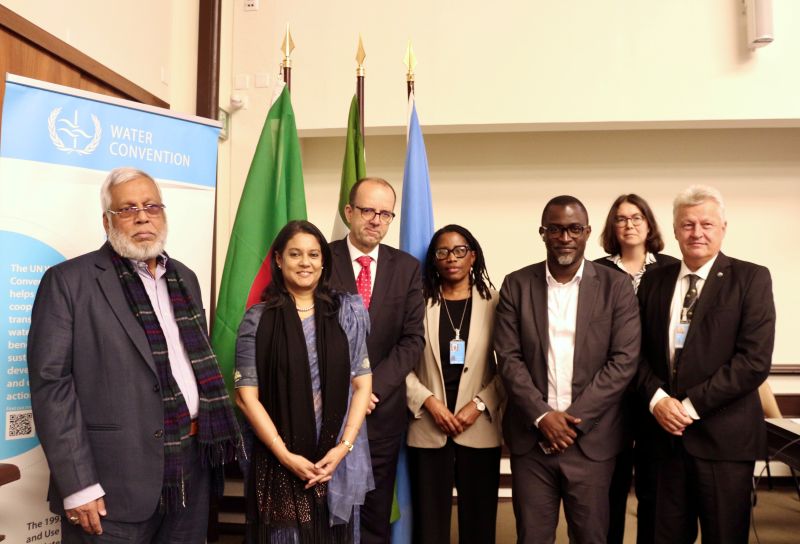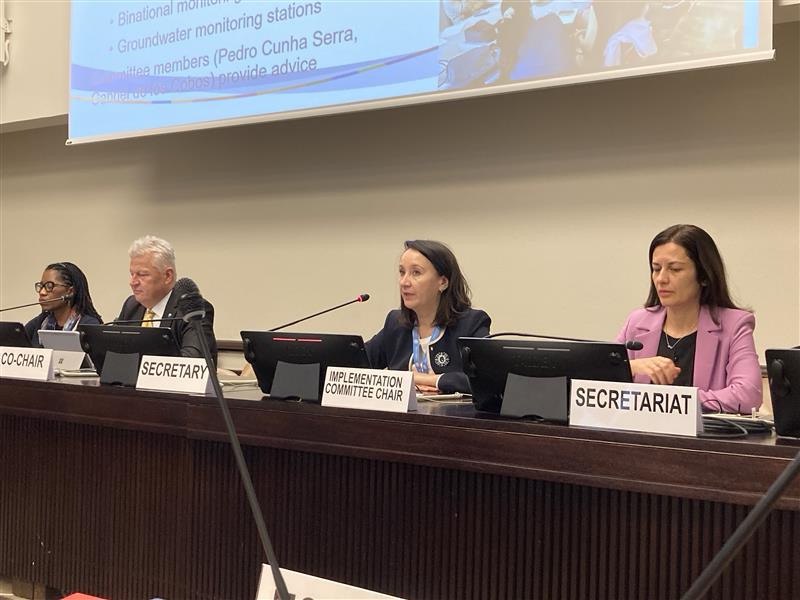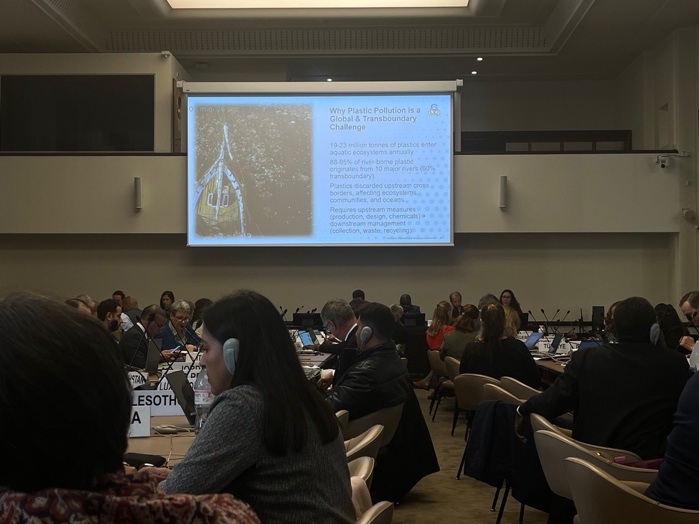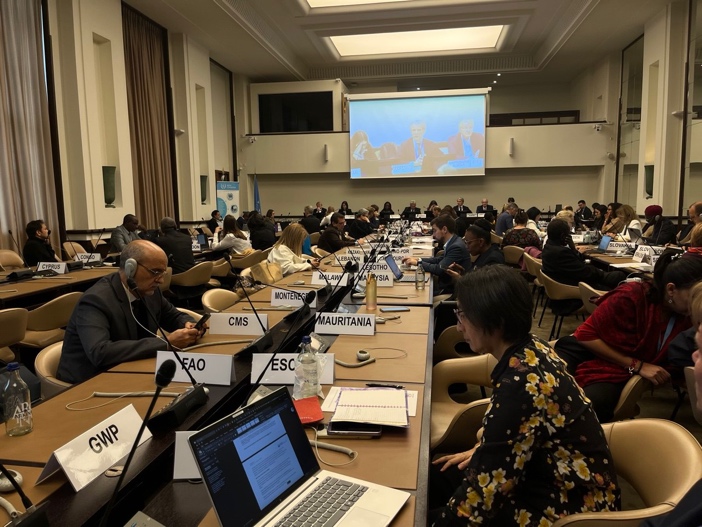No. 95 (619) October 2025
The UNECE Water Convention working groups set a course toward strengthening global water cooperation
6th joint meeting of the Working Group on IWRM and the Working Group on Monitoring and Assessment under the Convention on the Protection and Use of Transboundary Watercourses and International Lakes (Water Convention) has concluded in Geneva. In the course of three days, from 13 to 15 October 2025, at the Palais des Nations, delegates of the Parties and partner organizations reviewed implementation of the programme of work for 2025–2027 and discussed key challenges in water sharing.
The key discussion topics were as follows:
Ratification status and global opening: The secretariat presented an update on the status of the Convention’s ratification. New Parties that joined after the tenth session of the Meeting of the Parties — notably Bangladesh (which acceded on 20 June 2025) — were officially welcomed. Countries currently in the process of accession reported on their progress. Discussions also focused on capacity-building measures and the development of national implementation plans for new Parties.
Compliance: The Chair of the Implementation Committee, D.R. Ziganshina, presented a report summarizing the Committee’s work, which highlighted its efforts to support countries in fulfilling their obligations and promoting compliance with the provisions of the Convention. The report included information on the ongoing advisory procedure between Albania and Montenegro, as well as on the Committee’s legal and technical support to drafting transboundary agreement on the Senegal–Mauritanian aquifer basin.


Integrated and intersectoral approach (nexus): Working groups endorsed the Guidance Note for the Implementation of Source-to-Sea Management in Transboundary Basins. Progress on the Policy guidance on conjunctive management of surface waters and groundwaters was presented; the participants reviewed a draft annotated outline of the publication. Supporting intersectoral dialogues through the application of the water-food-energy-ecosystems nexus approach was discussed. UNECE staff also highlighted joint work under the IKI Nexus project in Central Asia, emphasizing the importance of supporting intersectoral dialogues and assessments through a nexus approach to promote the sustainable development of transboundary basins.
Combatting plastic pollution: A separate thematic session was devoted to prevention and mitigation of plastic pollution in transboundary basins. The crucial role of transboundary cooperation in addressing this complex issue—affecting ecosystems from source to sea—was underscored. The discussion also highlighted the link between this topic and the programme areas on “source-to-sea” management and ecosystem conservation.


Preparations for the United Nations 2026 Water Conference: Delegates discussed ways to advance the transboundary water cooperation agenda in the lead-up to the upcoming Conference, aiming to ensure that this aspect is reflected in global decisions related to achieving Sustainable Development Goal 6.
Adaptation to climate change: The outcomes of the Global Workshop (March 2025) were presented, along with a review of progress in mainstreaming water management into national adaptation plans and preparations for the 30th session of the UNFCCC Conference of the Parties (COP30), including contributions to the development of indicators for the global goal on adaptation.
Reporting on Sustainable Development Goal indicator 6.5.2 and under the Convention: Information was presented on the planning of the fourth reporting cycle (with a deadline of 30 June 2026). The progress in developing a new online reporting system—designed to streamline the process for countries and co-custodian institutions (UNECE and UNESCO)—was also discussed.
Financing the Convention’s work: The information on the impact of the United Nations financial and liquidity crisis on the Convention secretariat and the Water Convention programme of work was reported. Progress of the Ad Hoc Working Group on Sustainable Financing on development of a proposal on a mandatory contribution scheme was discussed. This scheme is to be reviewed at the 11th session of the Meeting of the Parties in 2027. Progress in the approval of the decision on multilingualism under the Water Convention (X/3) was reported. This decision will have budget implications and shall be endorsed by ECOSOS. Parties were called upon to advocate through their respective UN missions so that the funding of UNECE is not reduced.
Conclusion and SIC’s contribution
The meeting successfully reviewed ongoing activities and engaged in strategic planning. Key challenges remain ensuring financial sustainability and effectively integrating the Convention’s agenda into global climate and sustainable development processes. The report of the Implementation Committee reaffirmed the Convention’s effectiveness — not only as a declarative framework, but as a practical instrument for supporting the fulfillment of commitments.
The topics discussed — including plastic pollution, the Nexus approach, and financing — are highly relevant and call for continued active engagement of Central Asian countries in this work. The focus on joint efforts under the IKI Nexus project creates additional opportunities for synergy and for showcasing tangible results from regional activities at the international level. Participation in the event provided up-to-date insights into current priorities, helped strengthen partnerships, and contributed to discussions on the next steps for implementing the Convention.
About Implementation Committee
About the IKI Nexus Project: www.oecd.org | cawater-info.net